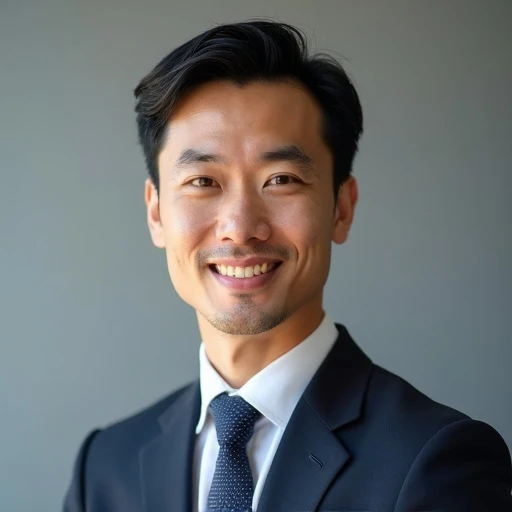The World Health Organization's Regional Office for Europe has established a new expert panel to provide guidance on the use of artificial intelligence in the health sector. Known as the Technical Advisory Group on Artificial Intelligence for Health (TAG-AI), the body will advise on the ethical and responsible application of AI technologies across the European Region.
Key Takeaways
- WHO/Europe has created a Technical Advisory Group on Artificial Intelligence for Health (TAG-AI).
- The group consists of 10 experts selected from a pool of 330 applicants, focusing on expertise, geographical balance, and gender diversity.
- TAG-AI's primary role is to advise on the ethical, safe, and equitable implementation of AI in healthcare systems across the European Region.
- The group will operate for an initial two-year term, aligning with the European Programme of Work 2026–2030.
A New Body for AI Governance in Health
The World Health Organization has taken a significant step toward managing the rapid integration of artificial intelligence into healthcare. The formation of TAG-AI was officially announced at a launch event in Porto, Portugal, on September 24. This new group will serve as a key advisory body to the WHO Regional Director for Europe.
The creation of this panel addresses the growing need for structured oversight as AI tools become more prevalent in diagnostics, treatment planning, and public health management. The group's work is intended to help member states navigate the complexities of this technological shift.
"The selection for this group was competitive. From a pool of 330 applicants, we picked 10, based on expertise, geographical balance and gender diversity," stated Dr. Hans Henri P. Kluge, WHO Regional Director for Europe. "Together, you form a strong, powerful team."
Mandate and Core Responsibilities
TAG-AI has been assigned a comprehensive mandate that covers several critical areas of AI implementation. The group is tasked with ensuring that the deployment of AI in health is safe, effective, and respects human rights. Its responsibilities are designed to provide a robust framework for member states.
The core functions of the advisory group include:
- Expert Advice: Providing guidance to WHO/Europe on integrating ethical principles, governance, and regulatory oversight into national AI strategies.
- Policy Development: Supporting the creation of research and policy recommendations for emerging AI fields such as machine learning and natural language processing.
- Implementation and Monitoring: Advising on the practical application, monitoring, and evaluation of AI systems in clinical settings to ensure they are transparent and accountable.
- Advocacy and Awareness: Working to raise public and professional awareness about the benefits and risks of AI, with a special focus on promoting equity in low-income settings and for underrepresented communities.
Aligning with Regional Strategy
The work of TAG-AI is guided by the "Digital health action plan for the WHO European Region 2023–2030". This plan emphasizes WHO/Europe's commitment to supporting countries in governing their digital health transformation and making informed decisions about new technologies.
A Highly Selective and Diverse Team
The composition of TAG-AI reflects a deliberate effort to bring together diverse perspectives. The selection process was highly competitive, with only 10 individuals chosen from a large pool of 330 applicants. This rigorous selection underscores the importance the WHO places on the group's mission.
Selection by the Numbers
- Applicants: 330
- Selected Members: 10
- Selection Rate: Approximately 3%
According to WHO/Europe, the final members were chosen based on a combination of deep expertise in relevant fields, ensuring a balanced representation from different parts of the European Region, and maintaining gender diversity. This approach is intended to ensure that the group's recommendations are comprehensive and applicable across a wide range of national contexts.
The group is scheduled to meet at least once a year, with the flexibility to convene for additional working sessions as required. This structure will allow the team to remain agile and responsive to the fast-paced evolution of AI technology.
Meet the Members of TAG-AI
The 10-member group comprises leading academics, researchers, and policy advisors from across Europe and the United States. Their collective expertise spans computer science, public health, law, and ethics.
The members of the advisory group are:
- Dr. Cansu Canca: Director of Responsible AI Practice, Institute for Experiential AI, Northeastern University, Boston, USA.
- Dr. Line Farah: Advisor to the Minister of Health and Access to Care, France.
- Dr. Georges Hattab: Adjunct Professor of Computer Science, Free University Berlin, and research group leader at the Robert Koch Institute, Germany.
- Dr. Azra Ismail: Assistant Professor, Biomedical Informatics and Global Health, Emory University, Atlanta, USA.
- Dr. Hannah van Kolfschooten: Lecturer and researcher, Law Centre for Health and Life, University of Amsterdam, Netherlands.
- Dr. Jukka Lähesmaa: Senior Specialist, Ministry of Social Affairs and Health, Finland.
- Dr. Martin McKee: Professor of European Public Health, London School of Hygiene and Tropical Medicine, United Kingdom.
- Dr. Lampros Stergioulas: Professor of Data Science, The Hague University of Applied Sciences, Netherlands.
- Dr. Igor Vikhrov: Head of Advanced Technologies Implementation, Tashkent Paediatric Medical Institute, Uzbekistan.
- Dr. Eva Weicken: Chief Medical Officer, Fraunhofer Heinrich Hertz Institute for Telecommunications, Germany.
This team will operate for an initial term of two years, playing a crucial role in shaping the future of AI in health for the 53 Member States in the WHO European Region. Their primary goal is to help these nations harness the potential of AI to improve health outcomes while carefully managing the associated risks.





